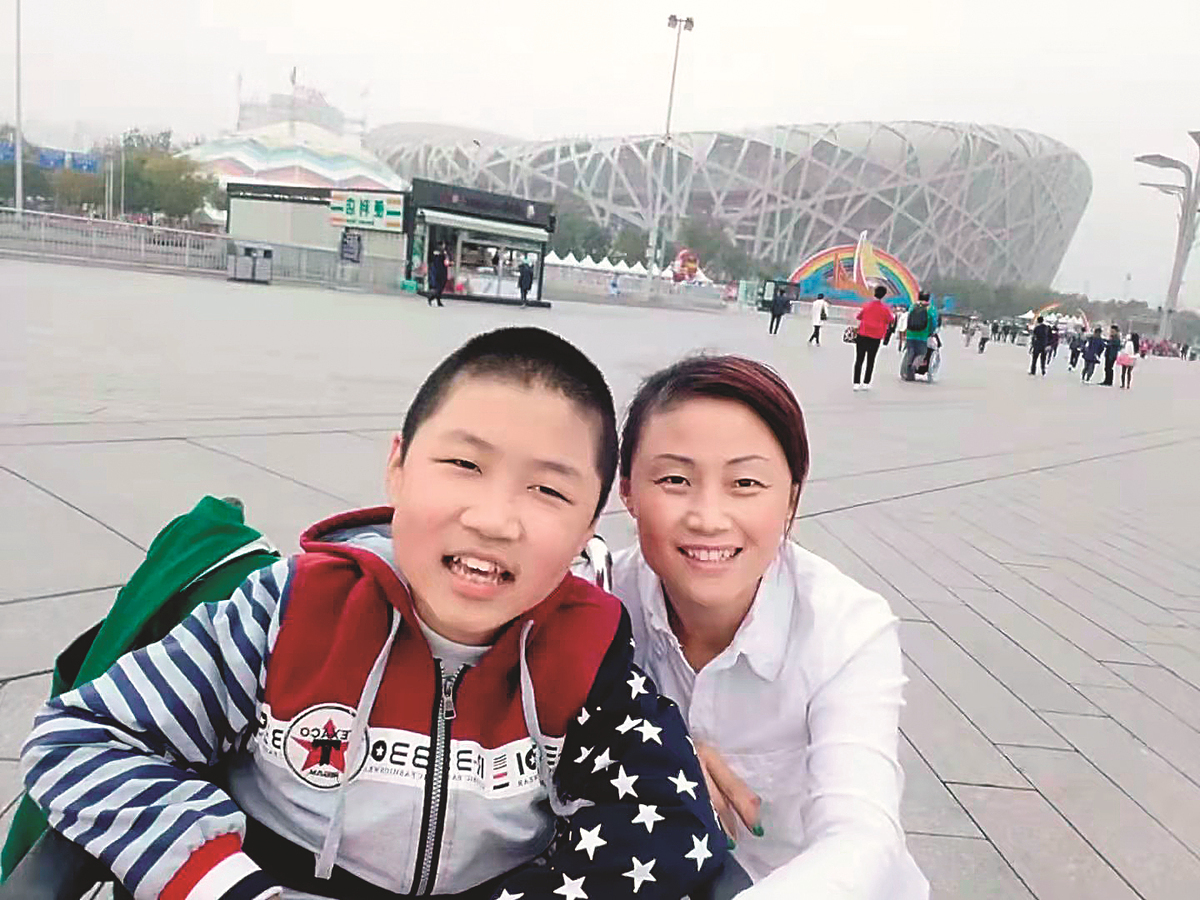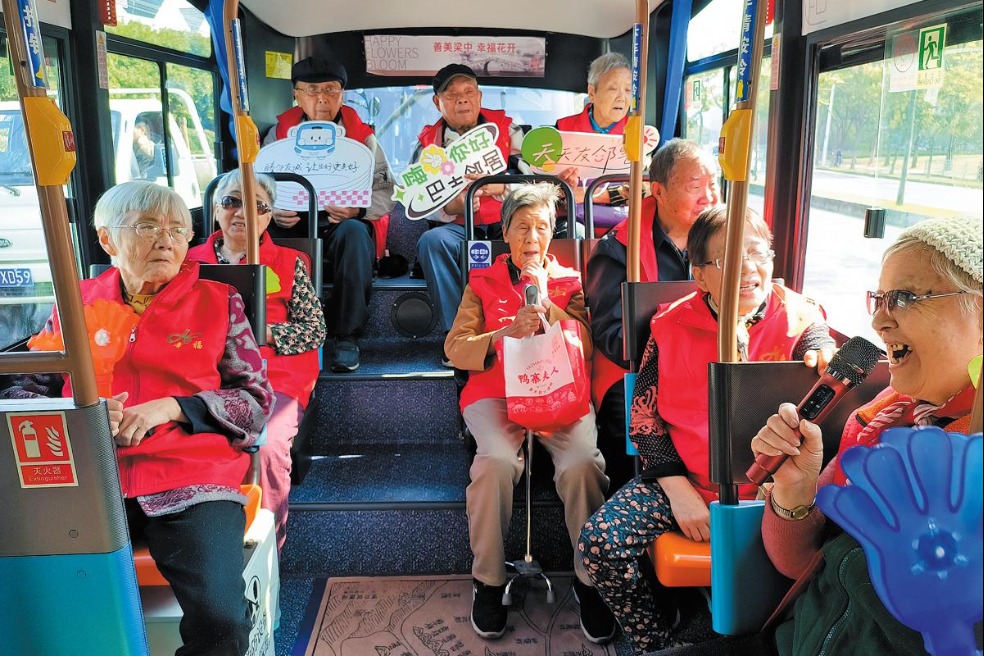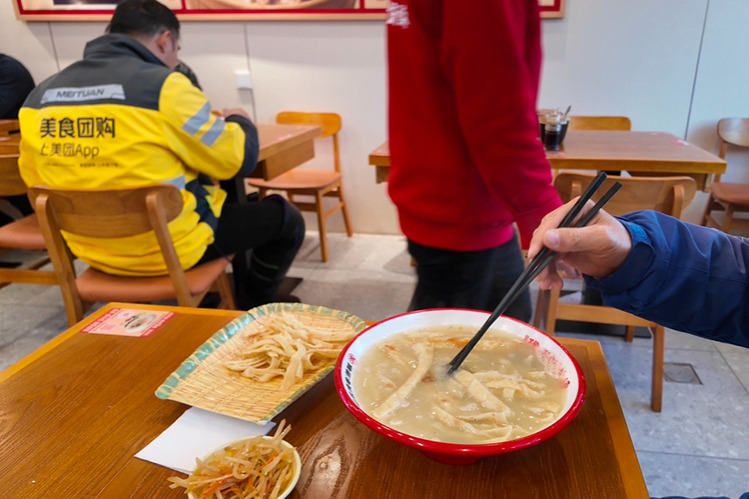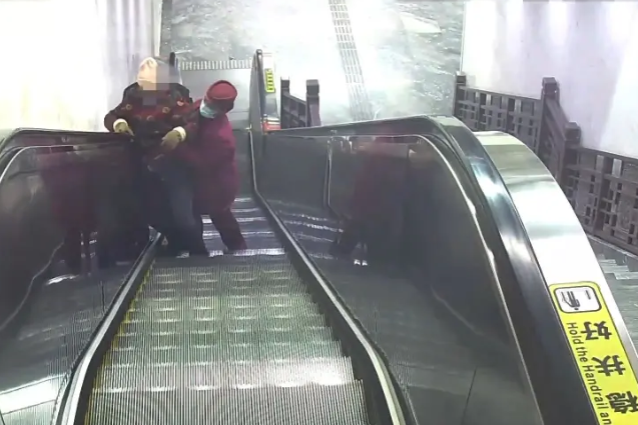From tragedy, the gift of sight for five lucky recipients


Single mother loses sons to genetic disease and donates their organs to science
Despite still grieving the recent death of her younger son on Feb 9, Bi Yu is able to take some pride and relief in the bravery her two dead sons showed in helping five visually impaired people regain their eyesight.
The 47-year-old woman from Heilongjiang province spent 23 years taking care of her sons, both of whom suffered from progressive muscular dystrophy.
Her elder, Wang Jiabo, donated his corneas to three people in January 2015. and her younger son, Wang Weikang, donated his to another two.
Jiabao was born in 1996 in a village in Zhaodong, a county-level city in Heilongjiang.
"By the time he was 3, I saw he had trouble walking and often fell over," Bi said.
"We took him for treatment to a hospital in the capital, Harbin, where he was diagnosed with progressive muscular dystrophy."
Muscular dystrophy causes progressive weakness and the loss of muscle mass as a result of genetic mutations that interfere with the production of proteins needed to form healthy muscle.
"I never imagined that he would grow up with such a disease. The doctor told me there was no effective treatment," Bi said.
"I decided to give him a better, happier life, so we move to Daqing city (in Heilongjiang), a much larger place than our small village."
Jiabao gradually lost his ability to walk and Bi was forced to stay at home to take care of him while her husband took on odd jobs to support the family.
In 2005, Weikang was born, but he, too, was diagnosed with progressive muscular dystrophy three years later.
After his diagnosis, Bi's husband became increasingly negative about life. "I felt that I could take proper care of my sons and we could live well without him, so I decided to divorce," she said. "Life was really hard, but I persisted."
With the help of a local women's federation, Bi studied to become a manicurist and began to receive clients at home. In the winter, she sold handmade frozen dumplings on social platforms and through livestream broadcasts.
"Both my sons were unable to attend school due to their physical condition," she said. "They tried lots of different ways to learn, from books, TV and the internet because of their thirst for knowledge."
When Jiabao told his mother at the age of 13 that he wanted to donate his corneas after death, Bi was firmly opposed to the idea.
"At the time, I knew little about cornea donations," she said. "I didn't want him to suffer more pain after death," she said.
"He told me the true story of a 3-year-old girl who had donated her corneas that he'd seen on TV. He also told me that cornea donation was really meaningful, both to the donor and the recipient."
Bi spent nearly a year learning what she could about cornea donation, including from the local branch of the Red Cross Society.
"I finally agreed when I saw what Jiabao had posted on his social media account, that it would be better to leave light in the world than turn to ashes," she said. "I also felt that the donation would keep part of my son alive."
So when Jiabao passed away on Jan 21, 2015, Bi respected his wishes and donated his corneas. They helped three people regain their eyesight.
Influenced by his elder brother, Weikang signed a cornea donation form in 2018, and Bi also registered to donate her body for medical research.
On Feb 9, Weikang died at age of 17. His corneas helped two more people regain their eyesight.
"During the 2017 National Day holiday, I took Weikang to Beijing, the farthest place he had ever been," Bi said.
"We visited its famous tourist attractions, including the Great Wall."
"I really regret that I was never able to take Jiabao out of Daqing because I could not manage them both at the same time," she added. "My sons' corneas are still here, and I believe their recipients are now able to enjoy this wonderful world."






























